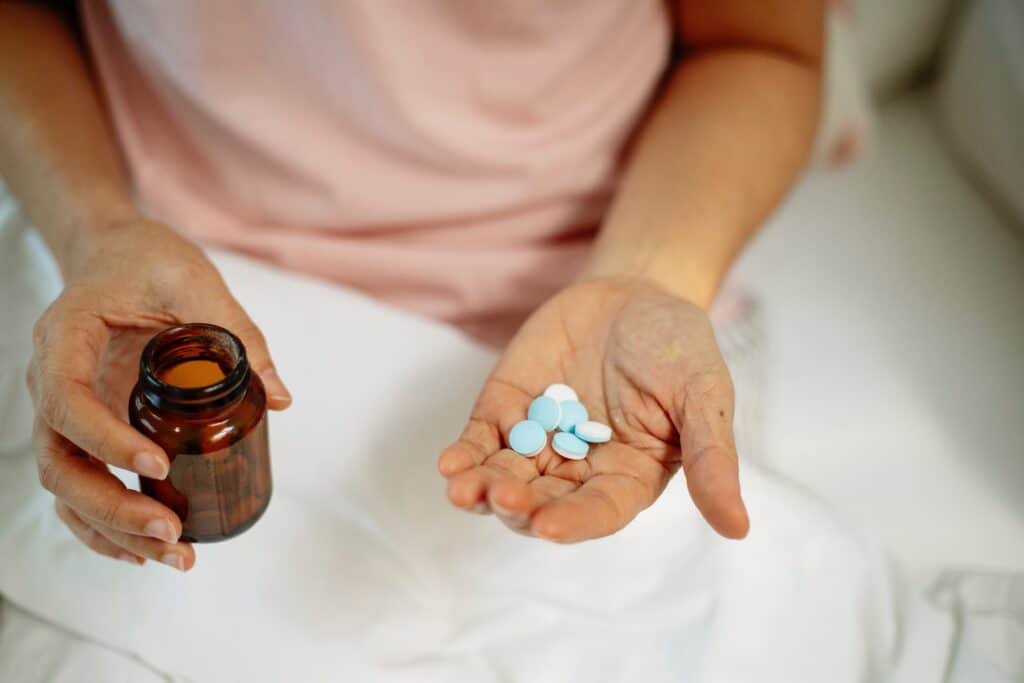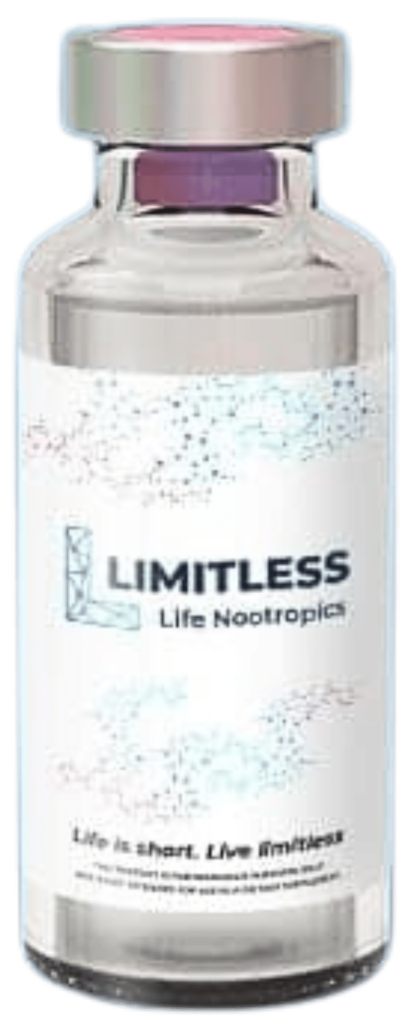Digestive upset can turn your day from great to a nightmare.
In fact, it affects and interrupts the lives of about 40% of Americans due to gut issues according to the American Gastroenterological Association (AGA).
These people have frequent bathroom visits and insufficient bowel movements that hinder them from spending more time with family and friends and accomplishing things they need or want to do like running errands and working out.
This is the reason why you should take care of your gut, as the majority of the body’s organs depend on it to function.
Otherwise, your life and health can be at stake.
Table of Contents
ToggleThe Gut and Peptide Therapy

The gut, also known as the body’s second brain, is where all the food we eat is broken down.
This food enters the bloodstream, allowing the body to absorb the nutrients it needs to function properly.
However, the body can only absorb these nutrients if the gut microbiome is healthy and balanced.
Conversely, an imbalanced microbiome can disrupt the digestive process, resulting in constipation, bloating, heartburn, leaky gut, diarrhea, stomach pain, and nausea.
Not only that, but poor gut health can also cause poor sleep and fatigue in some people.
Since the gut supports the metabolism, you may experience sudden weight gain or weight loss if your gut is compromised.
Other people experience anxiety and depression due to gut issues.
Moreover, you may notice skin irritations such as eczema, acne, dermatitis, and psoriasis due to inflammation caused by an imbalance in the gut.
As a regular Jay Campbell reader, you already know about Metformin’s incredible ability to improve gut health by upregulating akkermansia.
If you’ve tried everything else to avoid these symptoms due to gut health problems to no avail, it’s time to put the peptide BPC 157 for gut health to work.
BPC 157 for Gut Health

BPC-157, also known as Body Protective Compound 157, is a peptide designed to support gut health.
As a “stable gastric pentadecapeptide,” it can maintain its stability within the human gastric juice environment.
It also mimics the protective proteins that already exist in the gut, helping heal any damage within it.
You see, the body produces a natural BPC-157 in minimal amounts, helping protect the digestive system.
However, researchers believe that taking a concentrated version of BPC 157 for gut health has more beneficial and regenerative effects.
For example, it can help manage inflammation, support a healthy stomach lining, protect the gut against NSAID toxicity, and help reverse alcohol intoxication.
Reduces Inflammation
Just like any organ of the body, your gut is also at risk of chronic inflammation.
Usually, inflammation is the result of an imbalanced immune system.
An overreactive immune system can lead to damage of the gut lining and inflammation of the gastrointestinal tract.
This results in inflammatory bowel disease (IBD), such as ulcerative colitis or Crohn’s disease.
The immune system also reacts to endotoxins and other bacteria, causing them to leak into the bloodstream.
As a result, the immune system attacks these foreign substances, resulting in chronic inflammation.
The persistent attacks lessen your ability to absorb nutrients and may affect your metabolism, wreaking havoc on your digestive health.
Fortunately, BPC-157’s anti-inflammatory properties support healthy inflammation.
It works by inhibiting the production of pro-inflammatory cytokines while increasing the production of anti-inflammatory cytokines.
These actions contribute to decreased inflammation and enhanced gastrointestinal well-being.
In fact, an animal study published in the Journal of Physiology and Pharmacology showed that mice given BPC-157 saw improved periodontal tissues in ligatures due to inflammation.
Rats were treated with BPC-157 (once daily for 12 days) or vehicle.
On day 13, the gingivomucosal tissue encircling the molars was removed on both sides. Inflammation was assessed by Evans blue plasma extravasation technique and by histology.
Alveolar bone loss was analyzed by microCT. BPC-157 had no effect on gingivomucosal blood flow.
Twelve-day ligature caused a significantly increased Evans blue extravasation in the gingivomucosal tissue, histological signs of inflammation, and alveolar bone destruction.
BPC-157 treatment significantly reduced plasma extravasation, histological alterations, and alveolar bone resorption.
In conclusion, the systemic application of BPC-157 does not alter blood circulation in healthy gingiva. Chronic application of the peptide has potent anti-inflammatory effects on periodontal tissue in ligature-induced periodontitis in rats.
Supports healthy stomach lining
The intestinal lining protects your gut from bacteria and infectious agents that can cause harm to it.
It also produces stomach enzymes that break down food so your body gets the nutrients it needs to operate.
However, the stomach lining sometimes gets inflamed, producing less enzymes, acid, and mucus.
This can lead to gastritis, causing pain, vomiting, and nausea.
If left untreated, gastritis can result in sores in the stomach lining, also known as ulcers, or worse, stomach cancer.
Fortunately, BPC-157 helps support a healthy stomach lining by boosting collagen production.
Collagen helps repair any damage and seals the gut lining, making it resilient and less permeable.
By restoring the integrity of the gut wall, unwanted substances have no chance of sneaking through.
In fact, a mice study published in the Journal of Physiology-Paris shows that BPC-157 has wound healing benefits thanks to its ability to boost collagen production in the body.
In our work, we tested the influence of BPC-157 on granulation tissue and collagen formation, on angiogenesis as well as on tensile strength development, using three experimental rat models:
1) Skin incisional wounds; 2) colon-colon anastomoses; and 3) angiogenesis model with synthetic sponge implantation.
The specimens were histologically assessed for collagen, reticulin, and blood vessels using scoring and morphometry.
In all experiments, significant differences between BPC-157-treated animals and controls were found, showing a strong, promoting involvement of BPC in the healing process.
This goes to show that BPC-157 is a great peptide option for healing wounds and damage caused by inflammation in the stomach lining.
Protects against NSAID toxicity and ulcer
Non-steroidal anti-inflammatory drugs or NSAIDs, such as acetylsalicylic acid, naproxen, and ibuprofen, work by inhibiting compounds that trigger inflammation.
The problem is they can backfire, disrupting the microbiome.
Symptoms include vomiting, nausea, constipation, and diarrhea.
It can also cause serious bleeding, perforation, and obstruction that can stop foods or liquids from passing through the gut.
Worse, they can affect the gastrointestinal tract, leading to complications such as ulcers.
Fortunately, BPC 157 for gut health helps alleviate these symptoms and neutralizes the damage to the gut lining caused by NSAID drugs.
In rats, BPC-157 helps protect the layers of the stomach from ethanol damage, thus preventing the development of stomach ulcers.
Both intramuscular (im) and intragastric (ig) administration of BPC-157 could apparently reduce the ulcer area and accelerate the healing of induced ulcer in different models. The effect of im-administered BPC-157 was better than that of ig.
The rats treated with higher dosages (400 ng/kg, 800 ng/kg) of BPC-157 (im and ig) showed significantly fewer lesions (P < 0.01 vs excipient or saline control). The inhibition ratio of ulcer formation varied between 45.7% and 65.6%, from all measurements except 400 ng/kg BPC-157 in pylorus ligation-induced model (P < 0.05), in which the inhibition rate was 54.2%.
When im-administered (800 ng/kg BPC-157), in three models, the inhibition ratio of ulcer formation was 65.5%, 65.6%, and 59.9%, respectively, which was better than that of famotidine (its inhibition rate was 60.8%, 57.2%, and 34.3%, respectively).
Continuous application of BPC-157 (in chronic acetate-induced gastric ulcers) could accelerate the rebuilding of glandular epithelium and formation of granulation tissue (P < 0.05 at 200 ng/kg and P < 0.01 at 400 ng/kg and 800 ng/kg vs excipient or saline control).
Not only that, but BPC-157 also fully interacted with the dopamine system in rats to prevent ulcer risk and formation.
A gastric pentadecapeptide, BPC-157, has a variety of protective effects on the gastrointestinal tract and other organs and was recently shown to particularly affect dopamine systems.
The number of cataleptic mice was markedly lower throughout most of the experimental period.
Moreover, when challenged with lower doses of neuroleptics, catalepsy appearance was postponed and the mice, otherwise cataleptic since the earliest period, became cataleptic later, not before 3 or 4.5 h after neuroleptic administration, especially if protected with higher pentadecapeptide doses.
Besides catalepsy, coadministration of the pentadecapeptide BPC-157, given in the above-mentioned doses, reduced not only catalepsy but also somatosensory disorientation (for 7.5 h after administration of a neuroleptic, assessed at intervals of 1.5 h, by a simple scoring system [0-5]) in haloperidol- or fluphenazine-challenged mice as it did in mice treated with sulpiride (20, 40, 80 and 160 mg/kg b.w., i.p.) or with clozapine (25, 50 and 100 mg/kg b.w., i.p.), in which case catalepsy was absent.
Coadministration of pentadecapeptide BPC-157 (10 microg, 10 ng, 1.0 ng, 100 pg/kg b.w., i.p.) in rats completely inhibited the lesions otherwise regularly evident 24 h after haloperidol (5.0 mg/kg b.w., i.p.) in control rats (18 of 20 rats had gastric lesions).
This activity accompanied the antagonism of the haloperidol catalepsy in rats (assessed at 60-min intervals from I to 5 h after haloperidol) when 10-microg- or 10-ng regimens were given (lower doses could not influence catalepsy).
Moreover, rats that were given BPC 157 for gut health had reduced gastrointestinal tract lesions, helping to treat stomach ulcers.
Anti-ulcer agents may likely attenuate lesions outside the gastrointestinal tract since they had protected gastrectomized rats (a “direct cytoprotective effect”). Therefore, their therapeutic potential in lung/stomach lesions was shown.
Taking intratracheal HCl-instillation as time 0, a gastric pentadecapeptide, GEPPPGKPADDAGLV, M.W.1419, coded BPC-157 (10 microg, 10 ng, 10 pg), ranitidine (10 mg), atropine (10 mg), omeprazole (10 mg), were given [/kg, intraperitoneally (i.p.)] (i) once, only prophylactically [as a pre-treatment (at -1h)], or as a co-treatment [at 0)], or only therapeutically (at +18h or +24 h); (ii) repeatedly, combining prophylactic/therapeutic regimens [(-1 h)+(+24 h)] or [(0)+(+24 h)], or therapeutic/therapeutic regimens [(+18 h)+(+24 h)].
For all agents, combining their prophylactic and salutary regimens (at -1 h/+24 h, or at 0/+24 h) attenuated lung lesions; even if effects had not been seen already with a single application, they became prominent after repeated treatment.
In single application studies, relative to controls, a co-treatment (except to omeprazole), a pre-treatment (at -1 h) (pentadecapeptide BPC-157 and atropine, but not ranitidine and omeprazole) regularly attenuated, while therapeutically, atropine (at +18 h), pentadecapeptide BPC-157 highest dose and omeprazole (at +24 h), reversed the otherwise more severe lung lesions.
In other words, BPC-157 can protect your gut from the adverse and often toxic side effects caused by prolonged use of NSAIDs.
Reverses Alcohol Intoxication
Alcohol passes through the various segments of the gastrointestinal (GI) tract, interfering with the structure and function of GI tract segments.
It can also weaken the muscles separating the esophagus and stomach, resulting in heartburn.
Damage in the esophagus’ mucosal lining can also increase your risk of esophageal cancer.
Similarly, alcohol may impair muscle movement in the small and large intestines, contributing to the diarrhea frequently observed in alcoholics.
Moreover, it can hinder the absorption of nutrients in the small intestine and increase the transport of toxins across the intestinal walls.
This can result in the development of alcohol-related damage to the liver and other organs, which is first characterized by bloating and loose stool due to partially digested food and excessive fermentation in the gut.
Over time, drinking too much alcohol can cause inflammation that can make the wall of your gut lining become more permeable; therefore, you may find yourself no longer able to tolerate the foods you want to eat.
This can lead to dysbiosis and bacterial overgrowth over time.
BPC-157 can help reverse the adverse effects of acute and chronic alcohol intoxication.
In a study published in the Medical Science Monitor, it was found that BPC-157 helps protect the gut from symptoms caused by acute alcohol intoxication, including low body temperature, loss of muscle reflex, lack of reaction to external stimuli, and seizures.
BPC-157 rapidly opposes the strongest disturbance presentations in acute intoxication (sustained ethanol anesthesia, complete loss of righting reflex, no reaction to external stimuli, hypothermia, 25% mortality) and withdrawal (prominent seizures).
Aggravation of acute alcohol intoxication and opposition to withdrawal is common, but the later intervals affected by L-arginine and the action throughout the experiment by L-NAME are distinctive.
Given together, L-arginine and L-NAME counteract each other, while either the “L-NAME presentation” (acute intoxication) or the “L-arginine presentation” (withdrawal) predominates.
BPC-157+NO-agent: In acute intoxication (L-NAME predominating in NO-system functioning to aggravate intoxication), both BPC-157+L-NAME and BPC-157+L-arginine follow the presentation of L-NAME, but without worsened mortality.
In withdrawal (L-arginine predominating in NO-system functioning to oppose disturbance symptoms), BPC-157+L-NAME follows the presentation of L-NAME, while BPC-157+L-arginine imitates that of L-arginine.
BPC-157 can protect the esophagus, stomach, and liver from acute and chronic alcohol-induced lesions according to a mice study published in the Journal of Current Pharmaceutical Design.
The stable gastric pentadecapeptide BPC-157 (GEPPPGKPADDAGLV, M.W.1419), which was promising in inflammatory bowel disease (PL-10, PLD-116, PL-14736, Pliva) trials, protects against both acute and chronic alcohol-induced lesions in the stomach and liver but also, given peripherally, affects various centrally mediated disturbances.
In male NMRI mice, BPC-157 (10 pg intraperitoneally, 10 ng and 10 microg, intraperitoneally or intragastrically) (i) strongly opposed acute alcohol (4 g/kg intraperitoneally) intoxication (i.e., quickly produced and sustained anesthesia, hypothermia, increased ethanol blood values, 25% fatality, 90-min assessment period) given before or after ethanol, and (ii) when given after abrupt cessation of ethanol (at 0 or 3 or 7 h withdrawal time), attenuated withdrawal (assessed through 24 hours) after 20%-alcohol drinking (7.6 g/kg) through 13 days, with provocation on the 14th day.
In a nutshell, BPC-157 can help improve your gut health and nutrient absorption.
It also helps protect the integrity of the GI mucosa, prevents stomach ulcers, and promotes a healthy microbiome.
How is BPC-157 Administered?

The BPC-157 peptide can be used via oral capsules, subcutaneous injections, and nasal sprays.
You can take between 200-300 mcg twice a day (400-600 mcg total per day) until your injuries are healed, which I share in my international best seller Optimize Your Health with Therapeutic Peptides.
You can take it via subcutaneous injection using the vial included in your BPC-157.
Conclusion

Maintaining a healthy digestive system is crucial for overall health.
However, an imbalanced microbiome can stop your body from getting the nutrients it needs to operate.
Similarly, any damage to your gut’s intestinal walls can lead to serious issues, such as ulcers and cancer, over time.
Thanks to BPC-157’s anti-inflammatory and protective properties, it can support a healthy and well-functioning gut system.
If you are looking for the best BPC 157 for gut health…
We recommend Limitless Life Nootropics, as they have some of the best formulations of BPC-157 peptides on the market.
That’s not to mention Limitless offers the BEST deals on both price and peptide purity.
Use code JAY15 at the checkout cart for 15% off!
But before you start injecting these two peptides into your body recklessly, make sure you first read the Top 10 Mistakes People Make When Starting Therapeutic Peptides FREE PDF!
Seriously, this short e-book will save you a lot of wasted money and poorly spent time (not to mention preventing you from potential self-inflicted injuries).
And the emails I’ll send you after downloading the book contain an EXCLUSIVE 33% OFF code for my Peptides Demystified Course, so don’t miss out!
Raise Your Vibration To Optimize Your Love Creation!
PS — Are you experiencing bloating, stomach upset, or frequent bathroom visits that are affecting your daily activities?
Discover how you can support a healthy gut system with BPC-157 inside our exclusive group, The Fully Optimized Health Private Membership Group.
Join me and other biohackers as we discuss how peptides can help optimize your gut and overall health.
We’re excited to talk about biohacking, health, and life optimization through peptide therapy with you. See you on the other side!



